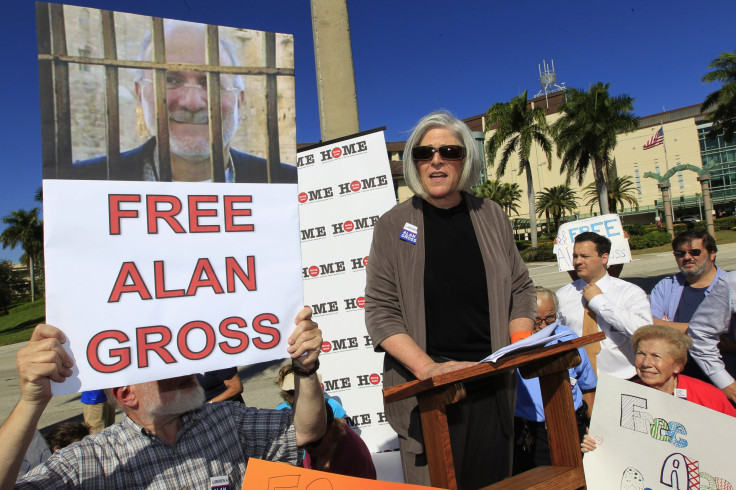US Aims To Warm Ties With Cuba Before Seeking Imprisoned American's Release

While American citizen Alan Gross spends his third year in Cuban custody, a delegation of U.S. lawmakers is in Havana, aiming to thaw relations in hopes of eventually securing his release.
Sen. Patrick Leahy, D-Vt., heading the seven-member delegation, said they were not in Cuba to negotiate Gross’s release, but rather to improve relations to the point where such talks could begin.
“There are obvious problems between our two countries, but we are not here to negotiate,” said Leahy. “We are here to listen and then go back home and talk about what we see.”
“Every one of us has an interest in Cuba,” he added. “We all want to see relations improve and both sides take steps in that direction.”
Gross, 63, was handed down a 15-year sentence in December 2009 after the Cuban government accused him of subversion for installing communications equipment in Jewish community centers as a subcontractor for a USAID program.
“The USAID program was approved under section 109 of the Helms-Burton Act, a law explicitly committed to regime change in Cuba,” wrote Arturo Lopez-Levy for Foreign Policy In Focus, a Washington-based think tank.
“Gross’ actions were covert,” Lopez-Levy continued. “He never obtained the informed consent of the Cuban government or the Cuban Jewish community, which has always expressed opposition to the Helms-Burton law -- particularly its attempt to politicize religious communities as tools to promote opposition groups.”
Gross’ family has blamed the USAID for not properly informing Gross of the risks involved in his work, and filed a lawsuit for some $60 million, which is currently in litigation.
Washington has maintained that Gross was involved in regular humanitarian programs in Cuba, and was arbitrarily targeted as a political bargaining chip.
The Cuban government has said it is willing to discuss Gross’s release but only if the U.S. considers negotiating the release of four Cuban intelligence agents who have been imprisoned since 1994, part of the “Cuban Five.” The fifth Cuban spy was released in October 2011 and remains in the U.S. on a three-year probation.
Washington has said that it would not swap prisoners.
“Whether U.S. diplomats realize it or not, the Obama administration's insistence on Cuba’s unilateral release of Alan Gross makes U.S. policy look amateurish,” wrote Lopez-Levy.
“Obama’s legacy in the hemisphere will suffer if he wastes his second term flexibility to improve U.S.-Cuba relations because of unrealistic expectations,” he added. “Incidentally, the probability of Gross’ release will improve as general relations do.”
© Copyright IBTimes 2025. All rights reserved.





















